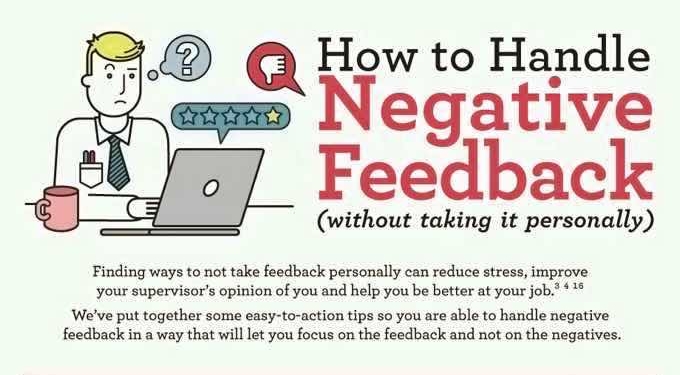Feedback is essential for us to learn and grow as human beings. But when it isn’t sugar-coated, it is much harder to swallow. You can have the best intentions in the world to seek, hear, and process negative feedback about the way you work, but if it gets under your skin and provokes a defensive attitude or upsets you unduly, then it was probably better not to ask for it in the first place.
How can you resolve this apparent contradiction? You need a strategy. Like so many other aspects of self-knowledge and self-improvement, taking negative feedback onboard is a skill. More specifically, it is a fresh mindset paired with a suite of mental and physical responses to hearing stuff you don’t like (and may not have expected) to hear.
Some of them will be familiar from other areas of self-learning. For example, understanding the connection between your mind and body (or at least that there is one!) is half the battle of coping with a stressful event such as receiving negative feedback when it happens. You know the drill by now, even if you didn’t know to apply it to this particular situation: stand or sit straight; shoulders down, arms open; slow, deep breaths; lots of eye contact.
In the context of receiving negative feedback, these efforts will help to keep you calm and feeling strong. They will all send calm, open signals to the person giving the feedback, which can help to nurture a peaceful atmosphere of sharing and learning. And they keep you engaged in the conversation so that you don’t get dragged down into your personal well of despair.
Slowing and relaxing in this way will also help you to modulate the rate at which you process the feedback. Instead of leaping to your own defence (or a retaliatory attack!), thank your critic and think over the feedback before apologizing or talking it over further.
Efforts like these are just the start of how you cope with negative feedback. For the full toolkit, have a careful look at the tips in this new graphic.

















